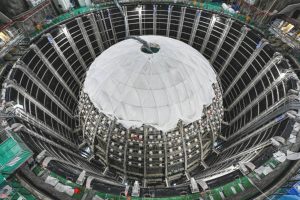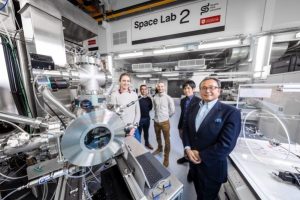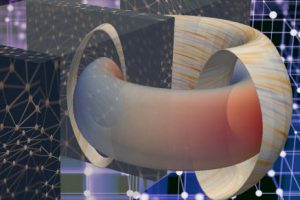Juno is a neutrino detector under construction 750m below Jiangmen in China. A collaboration between 17 countries, 730 scientists from 74 universities and national laboratories have worked on it. At its heart will be a 34.5m diameter acrylic sphere filled with 20,000 tons of liquid scintillator, which will emit photons if neutrinos interact with it – neutrinos sourced from eight ...
Tag Archives: nuclear
Leicester University, ispace work on lunar night survival technology
The University of Leicester is working with ispace, the Japanese space transportation specialist, to develop lunar night survival technology. They will collaborate on different approaches that could benefit future ispace lunar lander and rover missions. For example, they will be investigating, the use of radioisotope heater units to provide enough heat for a spacecraft through a lunar night, which has ...
Cumbrian robotics students compete in nuclear competition
Students are taking part in a robotics STEM competition with a twist: the challenges involved are designed by the nuclear power industry.
Nuclear, or a huge low-tech battery?
I was pondering with a friend last night, do we need new nuclear. And the answer seems to be yes, unless folk can adapt their consumption around the wind, sun and tides – which is possible, but the fact many people can’t be bothered to even spend five minutes sorting their recycling suggests that some percentage of the population will ...
Deep learning spots fusion reactor problems before they happen
Artificial intelligence is really doing stuff – for example, a company who I can’t mention, tried it alongside normal methods to flesh-out corner cases in a complex sensor product, and it got a better answer quicker. Now the US Princeton Plasma Physics Laboratory (PPPL) has used deep learning to forecast sudden disruptions that can halt fusion reactions, and even damage ...
Thorium nuclear reactors
Thorium reactors are rather interesting things. Firstly, they consume thorium instead of uranium. Secondly, they can be switched off instantly instead of having to be slowly shut down – or so I read once – which means extra safety should one get hit by a tidal wave, for example. However, the reactions are ot self-sustaining – hence the quick switch-off ...
 Electronics Weekly Electronics Design & Components Tech News
Electronics Weekly Electronics Design & Components Tech News



